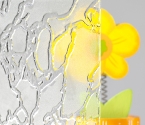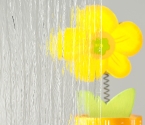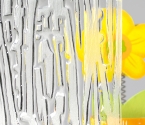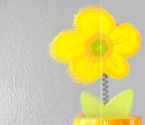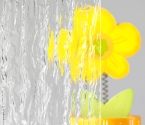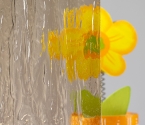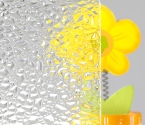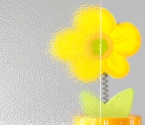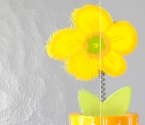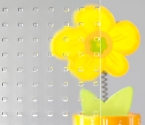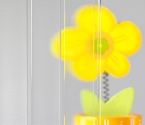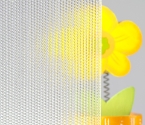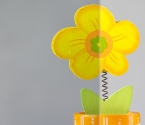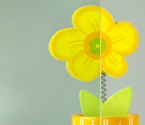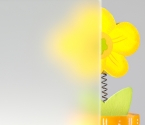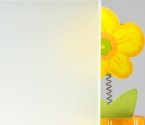Glazing
Standard glazing
Our standard glazing unit has excellent insulating properties with a very low heat transfer coefficient Ug = 1,0 W/m2K. This ensures minimal heat loss through the windows and will significantly reduce the cost for heating a house or apartment.
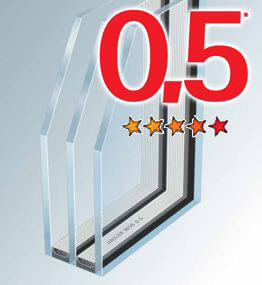
Other types of glazing:
Insulating glass
Insulating glass (double or triple glazing) is glass with the lowest coefficient of heat transfer. The insulating quality is achieved by applying a thin layer of metal on the inside of the inner glass that reflects heat back into the room and at the same time allows heat from solar radiation to penetrate. Ordinary double glazing unit has a heat transfer coefficient U = 3.0 W/m2K. In our windows, as standard we use glass with a heat transfer coefficient U = 1.0 W/m2, this value can be reduced by up to U = 0.5 W/m2 using a special triple glazing.
Safety glasses
Safety glass is a safety sheet with high rigidity, sandwiched between two panes of glass. Security film can have a different thickness in accordance with safety requirements. In the event of a forced entry the security film will prevent the glass from breaking creating. The window will deform in one sheet creating a more difficult barrier for the intruder to enter through. We would recommend the use of safety glass in locations with an increased risk of tampering.
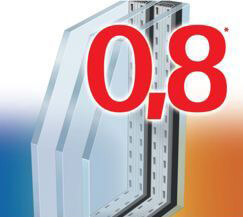
Ornamental Glass
Patterned glass and decorative textured glass can be a pleasant addition to a window.
The glass does restrict the amount of light that passes so it is advised that this type of glass is more typically used in social areas or on items such as front doors. There are many different ornamental designs to choose from. The most commonly used glass is clear with no color but glass can be tinted in a bronze or gold colour.
Acoustic Glass
Acoustic glass is very useful especially when windows are located close to a noisy environment, such as a busy street, factory, airport, train station, etc. In order to obtain a better acoustic quality we use insulated double and triple glazing. This improves the sound value from 32 to 45 decibels (dB).
Reflective glass
This type of glass has reflective qualities, reducing the transparency of the glass from the outside. The level of reflection can be chosen starting with clear glass with a reflective quality of 12% right up to mirrored glass with 100% reflection. Reflective glass can also reduce the effects of solar radiation.
